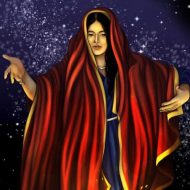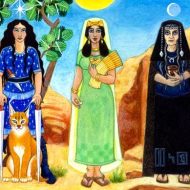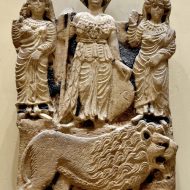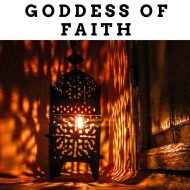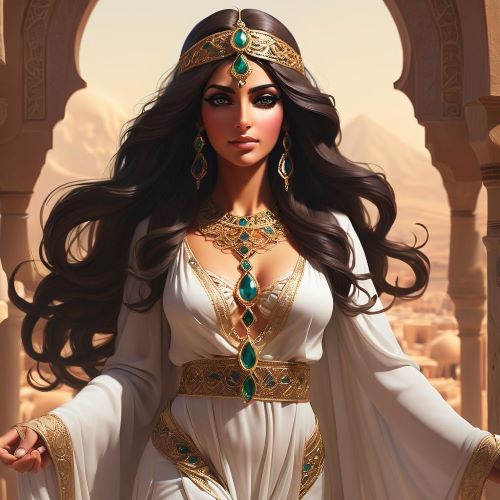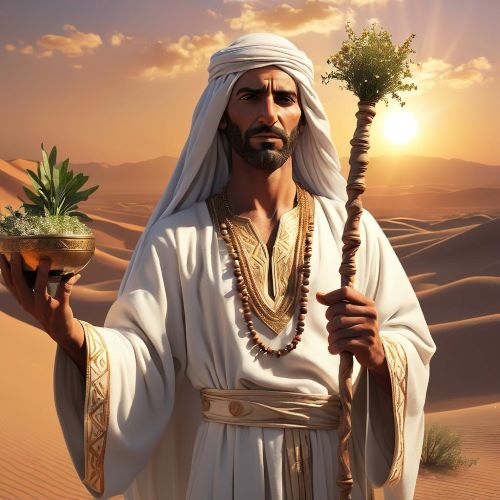Manat : Goddess of Time
Listen
At a glance
| Description | |
|---|---|
| Origin | Arabian Mythology |
| Classification | Gods |
| Family Members | Al-Lat, Al – Uzza (Sisters), Quzzah (Husband) |
| Region | Saudi Arabia, Jordan |
| Associated With | Fate, Faith, Time, Destiny |
Manat
Introduction
In Arabic mythology, the goddess associated with death and faith was named Manat. Her sacred site was a dark marble stone located inside the al-Mushalla temple near the city of Yathrib. The people of the Yathrib tribe, specifically the Banu al-Khazraj and Banu Awas, were devoted worshippers of Manat. Additionally, members of the Hijaz tribe in the Arabian Peninsula also revered her.
Before the advent of Islam and the arrival of the prophet Muhammad in the 7th century, this pre-Islamic goddess held a significant place in the religious practices of the Arabian Peninsula. She was one of the three primary deities of Mecca, alongside Al-‘Uzz and Al-Lat, with Manat considered the oldest and original among them.
Physical Traits
The goddess is commonly portrayed as an elderly, fragile woman clasping a vessel filled with symbols of death. In her initial depictions, she appeared in diverse forms, including a wooden portrait stained with blood. However, the most notable representation of the goddess was the statue erected at al-Mushalla. During their pilgrimages, the people of pre-Islamic Arabia would frequently linger before the idol, engage in the ritual of head-shaving, and deem it a significant waypoint in their pilgrimage.
Family
Considered the eldest among the three goddesses, she held a position next to her father, Allah (a common name for God). Her sisters, Allat and Al-‘Uzzá, also held significant roles in the pantheon. These goddesses, revered by diverse tribes in the Arabian Peninsula, were believed to safeguard graves and bring tranquility. According to pre-Islamic beliefs, Allah, after his creation, transitioned into a passive state, becoming a restful and inactive observer of the universe.
The trio of ruler’s daughters served as intermediaries between Allah and humanity, intervening only in dire circumstances. She is often seen as the mother, consort, or the warrior god Hubal. Additionally, the goddess is linked with the god of storms, clouds, and thunder, known as Quzah.
Other names
The goddess’s name holds two potential interpretations. One suggests it signifies “to mete out,” while the other implies “to be determined.” Both interpretations align with her role as the goddess overseeing destinies and fate. According to certain sources, the ancient Egyptians employed the term “maniya” to denote the concept of the future.
Powers and Abilities
The goddess held great reverence because of her association with bringing death. She possessed the ability to guide individuals in cultivating their inner wisdom, offering them a life imbued with magic. As the goddess presiding over time and death, her representation featured the waning crescent moon positioned above her head.
During moments of death, it was believed that the goddess held a vessel filled with death and vigilantly watched over graves. According to a tomb inscription, she, along with her sister Qaysha, would place curses upon those who bought or sold a tomb. Additionally, any gift, pledge, or documentation connected to the tomb would incur their attention and influence.
Modern Day Influence
In the year 1024, during the rule of Mahmud of Ghazni, the Somnath temple in India was attacked. According to the court poet Farrukhi, who claimed to be part of the raiding group, the motivation behind the assault was a belief that a concealed idol of the goddess was housed within the temple.
While the images of other goddesses were obliterated in the attack, the idol of the goddess Manat was clandestinely kept in Kathiawar, in modern-day Gujarat. Given the aniconic nature of this deity’s idol, it could have been easily mistaken for a lingam statue at Somnath. As recounted by the poet, Mahmud destroyed the idol and seized its fragments as plunder, subsequently placing them on the ground for people to tread upon.
Related Images
Frequently Asked Questions
What is the meaning of manat?
Before the rise of Islam and Muhammad in the 7th century, Arabian Peninsulars worshipped the goddess Manat. She was one of the three chief deities of Mecca, along with Al-Uzz and Allat.
Who are the 3 daughters of Allah?
During pre-Islamic times, Allah was regarded as a god with three female offspring: Al-Lat, Al-Uzza, And Manat. Each of them had their own shrine close to Mecca.
Who is the 3 goddess of Islam?
Although there were multiple goddesses worshipped in pre-Islamic times in Arabian Arabia, they have since been forgotten due to the rise of Islam. These goddesses were regarded as the daughters of Allah. However, with Muhammad’s teachings and the rise of Islam, their belief in Allah became a central part of the religion’s belief system.
Who is the father of Manat?
Manat was a pre-Islamic Arabian goddess worshipped in the Arabian Peninsula before the rise of Islam and the Islamic prophet Muhammad in the 7th century. Her father is believed to be Allah.

